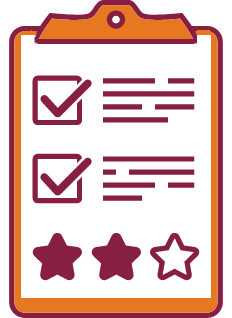Goals
- Analyze the rhetorical situation and determine the appropriate audience or users of written communication, considering the needs of global audiences and people with disabilities. [CLO 1]
- Conduct research appropriate to workplace problem solving, such as literature review, evaluation of online resources, interview, and site inspection. [CLO 2]
- Interpret research findings with understanding of ethical and human implications. [CLO 3]
- Use conventions of various workplace genres, such as proposals, instructions, correspondence, reports, and slide decks, with understanding of how the genre conventions can be used as heuristics and as principles of arrangement. [CLO 4]
- Collaborate with classmates in planning, researching, writing, revising, and presenting information. [CLO 5]
- Apply principles of effective visual design for print and electronic presentation, including hierarchical, chronological, and spatial arrangements. [CLO 6]
- Identify and apply the principles of effective style in the composing of usable, reader-centered written communications. [CLO 7]
The Task
The final exam in this course is optional. If you are happy with your current course grade, you need not submit a final.
Note: there is no grace period for the exam. If you do not submit your exam by 11:59 PM on Wednesday, May 12, you will earn zero points for the activity.
 What I Want You to Do
What I Want You to Do
Prepare to complete a performance review form by evaluating your work in the course and proposing the grade you should receive on the final. Gather information from your Weekly Work Logs and completed course activities to support the grade you recommend for the final.
Why I Want You to Do It
You will write performance evaluations in the workplace, both to assess your own work and to assess the work of colleagues. The final exam gives you the chance to learn about this type of writing while also evaluating your work in this course. The final exam gives you the chance to demonstrate your productivity and accomplishments in the course, using your best persuasive abilities to argue your case.
Where You Can Find Help
- Markel & Selber, Chapter 8, “Communicating Persuasively”:
- Webpages:
- Guidelines for Writing Your Employee Self-Assessment, from UC-Santa Barbara Human Resources
- Evaluation Resource Central: Peter Elbow, from Evergreen State College
- What is a Self-Assessment? from the Ohio National Guard
- Tracking Performance Accomplishments and Writing Self‐Assessments, from the USDA
How You Do It
- Familiarize yourself with the characteristics and features of performance reviews, using resources from the “Where You Can Find Help” section above.
- Review your work logs and gather your data. You are conducting primary research on your accomplishments in the course this term. You should find much of what you need in your Weekly Work Log. Consider these questions:
- What have you done to work consistently during the entire term?
- Which document demonstrates your highest quality work? Why?
- What work demonstrates that you invested your best effort in the course?
- How have you supported members of your group in your Feedback Discussions?
- Gather the relevant evidence (e.g., links to examples, quotations or other evidence from your work).
- Compare your findings to the course expectations. Once you have gathered your findings about your work in the course, compare them to the expectations for the kinds of work in the course, and conclude how well you did:
- Reading
- Writing
- Discussing
- Tracking
Be sure that you consider your work in the entire course, and if relevant, be honest about where you fell short. You can use tables and charts as appropriate to present your evidence.
- Use this information you have gathered to complete your final exam when it opens, at 12:00 AM (midnight) on Friday, May 7. Be sure to submit your exam by 11:59 PM on Wednesday, May 12. There is no grace period on the final exam.
Obtaining the Points for Your Work
- I will read your final, looking for evidence that supports your argument for a specific number of additional points.
- If necessary, I will adjust the number to better represent your work in the course.